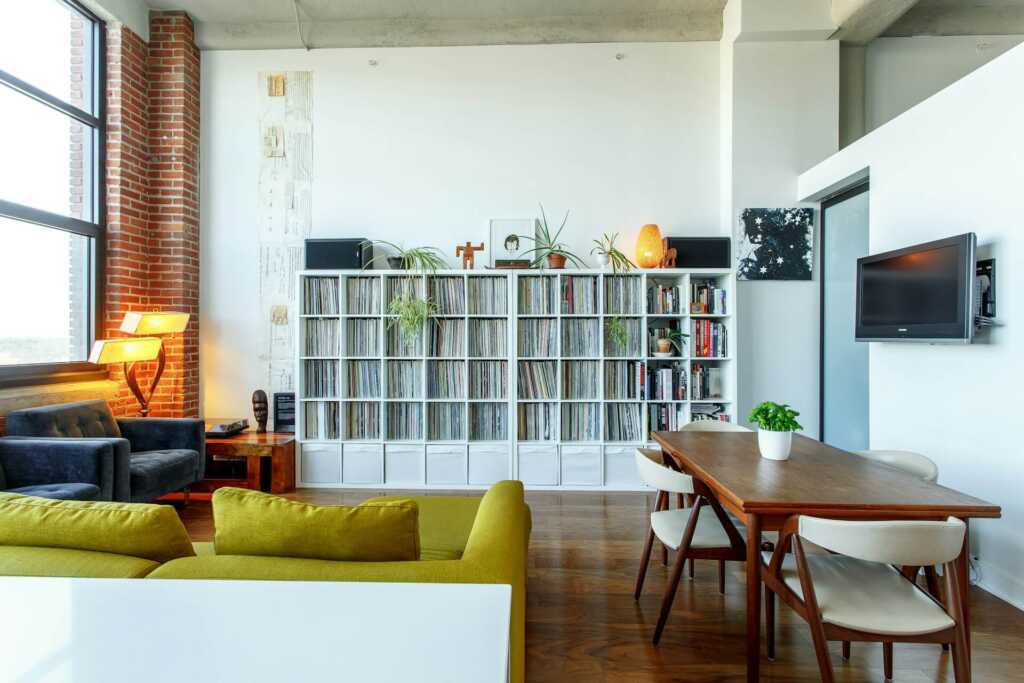In today’s fast-paced world, it’s easy to feel overwhelmed by information and demands, leading to stress and disconnection. The solution? Creating clutter-free environments that promote wellness and peace of mind. But with conflicting advice, where do we begin? In this guide, we’ll explore decluttering fundamentals and its benefits for your physical and mental well-being. Get ready for a journey toward a harmonious living space that nurtures your body and mind.

Understanding the Link Between Clutter and Well-being
Clutter not only takes up physical space but also creates mental chaos. It can be overwhelming, causing us to feel stressed, anxious, and even depressed. Studies have shown that cluttered environments can increase cortisol levels (the stress hormone) and decrease feelings of happiness and productivity. On the other hand, a clutter-free environment can make us feel calm, focused, and energized. Understanding this link between clutter and well-being is essential to motivate us to create a more organized and harmonious living space.
Innovative Storage Solutions for Maximizing Space and Minimizing
Creating a clutter-free environment presents a major challenge, particularly in finding adequate storage space for all our belongings. This is where innovative storage solutions come into play. From multi-functional furniture to creative wall shelves, there are countless ways to maximize space and minimize clutter. Additionally, consider utilizing the services of a trusted storage company for items that you don’t need daily but still want to keep. The key is finding a system that works for you and your specific needs. This will not only help declutter your living space but also make it easier to maintain in the long run. Think outside the box and explore different storage solutions!
The Benefits of a Clutter-Free Environment on Your Mental Health
A clutter-free environment can have a significant impact on our mental health. Not only does it reduce stress and anxiety, but it also promotes better sleep, increased productivity, and improved overall well-being. When we are surrounded by clutter, our minds can feel overwhelmed and distracted. By creating an organized living space, we free up mental energy to focus on more important tasks and activities. Moreover, a clutter-free environment promotes calmness and relaxation, allowing us to recharge and rejuvenate after a long day. So not only does decluttering improve the physical appearance of our space, but it also has powerful benefits for our mental health.

Practical Tips for Decluttering Your Living Space
Decluttering can seem exhausting, but with the right approach, it can be manageable and even enjoyable. Start by setting aside dedicated time to declutter each day or week, depending on your schedule. Take on one area at a time, such as a closet or bookshelf, instead of trying to tackle your entire home at once. Sort items into categories (keep, donate, discard), and be honest with yourself about what you need and use. Let go of items that no longer serve a purpose or bring you joy. And remember to maintain your decluttered space by regularly reevaluating and organizing it as needed.
The Psychology Behind Our Attachment to Possessions
Our possessions often hold sentimental value or serve as a reminder of a certain time in our lives. This attachment to our belongings can make it difficult to let go, leading to clutter and disorganization. Understanding the psychology behind this attachment can help us take a more objective approach to decluttering. Some reasons for our emotional connection to possessions may include fear of letting go of memories, fear of not having enough in the future, or a sense of identity tied to our belongings. By acknowledging and addressing these underlying reasons, we can be more intentional about what we keep and let go of in our living spaces.
How to Maintain a Clutter-Free Lifestyle
Creating a clutter-free environment is not a one-time task but rather an ongoing process. To maintain a clutter-free lifestyle, adopt certain habits and practices that prevent clutter from building up again. This may include regularly decluttering and organizing your space, being mindful of what you bring into your home, and setting boundaries with yourself and others about material possessions. It’s also important to regularly reassess and declutter items that are no longer serving a purpose in your life. Lastly, remember that a clutter-free lifestyle is not about perfection but rather creating a space that promotes wellness and peace of mind.
Creating a clutter-free environment is not just about having a tidy living space, but it’s also about promoting overall well-being and mental health. By understanding the link between clutter and our well-being, utilizing innovative storage solutions, and being mindful of our attachment to possessions, we can declutter our space and create a more peaceful and nurturing environment. Approach decluttering with practical tips, maintain good habits, and most importantly, be patient with yourself as you embark on this journey towards a clutter-free lifestyle.





